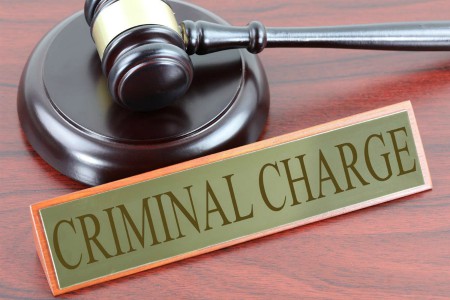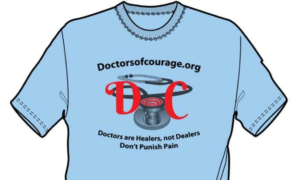The False Claims Act (FCA), 31 U.S.C. §§ 3729 – 3733 was enacted March 2, 1863. Also called the “Lincoln Law” due to being enacted by Abraham Lincoln, the FCA is a federal law that imposes liability on persons and companies (typically federal contractors) who defraud governmental programs.
As it relates to health care, the FCA makes it a crime for any person or organization to make a false record or file a false claim regarding any federal health care program through insurance or otherwise, which is funded directly, in whole or in part, by the United States Government or any state healthcare system. And who decides it is “false”?–the government.
History of the False Claims Act
The American Civil War was marked by fraud on all levels. Congress passed the False Claims Act concerned that suppliers of goods to the Union Army during the Civil War were defrauding the Army.
The law was used in the massive military spending leading up to and during World War II. First, the Department of Justice filed criminal cases and then immediately file civil suits under the FCA.
The law was again amended in 1986, again due to issues with military spending. But by the late 1990s, health care fraud began to receive more focus, accounting for approximately 40% of recoveries by 2008.
The law includes a qui tam provision that allows people who are not affiliated with the government, called “relators” under the law or “whistleblowers” informally, to file lawsuits on behalf of the government, and receive a portion of the recovered damages. As of 2019, over 72 percent of all federal FCA actions were initiated by whistleblowers. The government recovered $62.1 billion under the False Claims Act between 1987 and 2019
Summary of the False Claims Act
The full law can be seen HERE: FALSE CLAIMS ACT
- Liability: § 3729(a): explains the conduct that creates FCA liability.
- § 3729(a)(1)(A) and (B): any person who knowingly submits a false claim to the government or causes another to submit a false claim to the government or knowingly makes a false record or statement to get a false claim paid by the government.
- Sections 3729(a)(1)(D), (E), and (F) are rarely invoked.
- Damages and penalties
- Each violation of the statute requires a separate penalty.
- The knowledge requirement: A person does not violate the False Claims Act by submitting a false claim to the government. To violate the FCA a person must have submitted, or caused the submission of, the false claim (or made a false statement or record) with knowledge of the falsity. ( This was the original law. Now the courts are not requiring knowledge of the falsity)
- In § 3729(b)(1), knowledge of false information is defined as being
- actual knowledge,
- deliberate ignorance of the truth or falsity of the information
- reckless disregard of the truth or falsity of the information. (Now the law is being interpreted as the doctor “should have known” the claim was false, and is liable)
- In § 3729(b)(1), knowledge of false information is defined as being
- Definition of a claim: a demand for money or property made directly to the Federal Government or to a contractor, grantee, or other recipient if the money is to spent on the government’s behalf and if the Federal Government provides any of the money demanded or if the Federal Government will reimburse the contractor or grantee.
- The qui tam provisions § 3730(b): The FCA allows private persons to file suit for violations of the FCA on behalf of the government.
- The anti-retaliation provision allows a relator to recover, in addition to his award for reporting fraud, double damages plus attorney fees and reinstatement for any acts of retaliation for reporting fraud against the Government
Amendments of the False Claims Act
1986 (Pub.L. 99–562, 100 Stat. 3153, enacted October 27, 1986):
- damages increased to triple, and penalties increased to $5,000 to $10,000.
- The establishment of defendant liability for “deliberate ignorance” and “reckless disregard” of the truth; (one basis for attacking innocent doctors)
- Employment protection for whistleblowers including reinstatement with seniority status, special damages, and double back pay.
2009 (Fraud Enforcement and Recovery Act of 2009)
- Expanded the scope of potential FCA liability by eliminating the “presentment” requirement (effectively overruling the Supreme Court’s opinion in Allison Engine Co. v. United States ex rel. Sanders, 128 S. Ct. 2123 (2008));
- Redefined “claim” under the FCA to mean “any request or demand, whether under a contract or otherwise for money or property and whether or not the United States has title to the money or property” that is (1) presented directly to the United States, or (2) “to a contractor, grantee, or other recipient, if the money or property is to be spent or used on the Government’s behalf or to advance a Government program or interest” and the government provides or reimburses any portion of the requested funds;
- Amended the FCA’s intent requirement, and now requiring only that a false statement be “material to” a false claim;
- Expanded conspiracy liability for any violation of the provisions of the FCA;
- Amended the “reverse false claims” provisions to expand liability to “knowingly and improperly avoid[ing] or decreas[ing] an obligation to pay or transmit money or property to the Government;”
- Increased protection for qui tam plaintiffs/relators beyond employees, to include contractors and agents;
- Procedurally, the government’s complaint will now relate back to the qui tam plaintiff/relator’s filing;
- Provided that whenever a state or local government is named as a co-plaintiff in an action, the government or the relator “shall not [be] preclude[d]… from serving the complaint, any other pleadings, or the written disclosure of substantially all material evidence;”
- Increased theAttorney General’s power to delegate authority to conduct Civil Investigative Demands prior to intervening in an FCA action.
2010 (Patient Protection and Affordable Care Act)
- Statutory Anti-Kickback Liability.
-
- Changed the language of the Anti-Kickback Statute, 42 U.S.C. 1320a-7b(b) (AKS) to provide that claims submitted in violation of the AKS automatically constitute false claims for purposes of the FCA.
- Further, the new language of the AKS provides that “a person need not have actual knowledge … or specific intent to commit a violation” of the AKS. Accordingly, providers will not be able to successfully argue that they did not know they were violating the FCA because they were not aware the AKS existed.
The Meaning to Doctors
Basically, the message here to the average doctor—especially those independent, minority physicians being targeted—is that if they can’t get you through the Controlled Substance Act, they will get you through the FCA.
Is there fraud in medicine? Yes. But it isn’t the average independent, rural physician doing it. It is the hospital-owned clinics doing it. They are the ones doing unnecessary testing, unnecessary surgery, unnecessary referrals to their in-house specialties. But are they the ones attacked? NO! Their competitive work-for-the-patient independent physicians are the ones attacked! The hospitals are in cahoots with the government and vice versa. The underlying government agenda is to eliminate the expendable populations.
Should Doctors Take Government Insurance?
As long as this law is being used against us, NO!! Is there a solution? Yes. No one should be either civilly or criminally attacked for something they do not know is illegal. My suggestion is that a doctor should be told something is considered a “false claim” first. Then if they continue to do it, they can be charged. But until there is some protection for doing what is right for the patient, doctors should opt out of government insurance.
Take Our Survey
We are creating a survey for doctors across the country that have been or could be attacked by the FCA (which includes everyone eventually). So, doctors, please get our free gift HERE so we can send you the 6-question survey. Thanks.
Linda Cheek is a teacher and disenfranchised medical doctor, turned activist, author, and speaker. A victim of prosecutorial misconduct and outright law-breaking of the government agencies DEA, DHHS, and DOJ, she hopes to be a part of exonerating all doctors illegally attacked through the Controlled Substance Act. She holds the key to success, as she can offset the government propaganda that drugs cause addiction with the truth: The REAL Cause of Drug Abuse.
Get a free gift to learn how the government is breaking the law to attack your doctor: Click here to get my free gift

